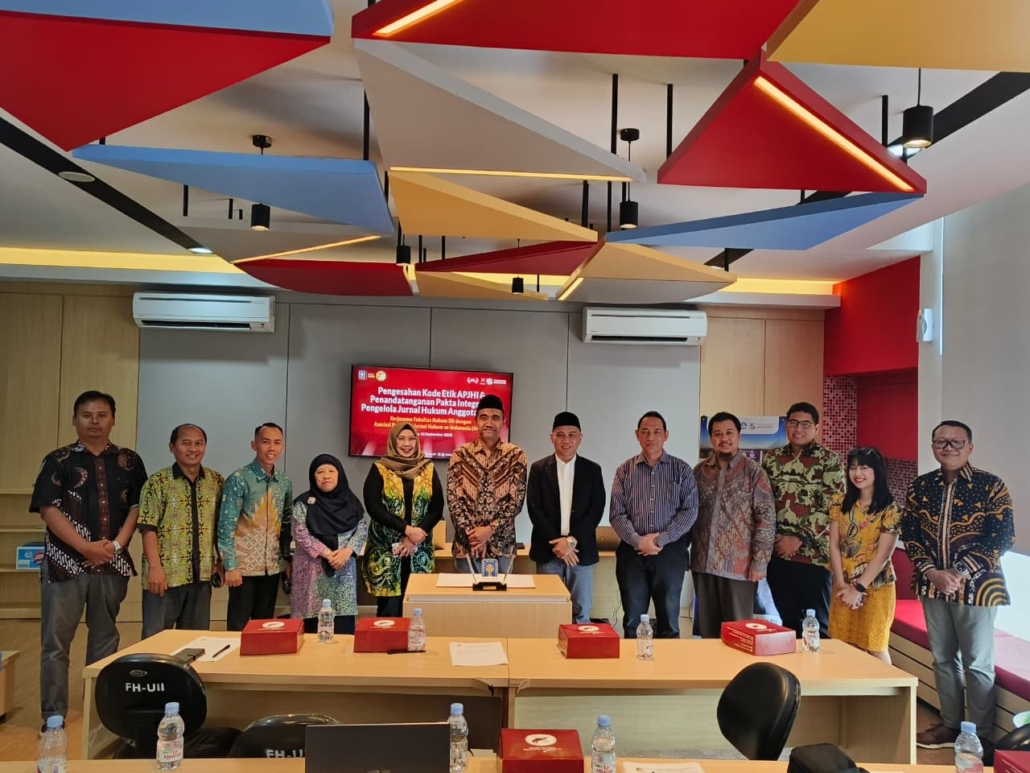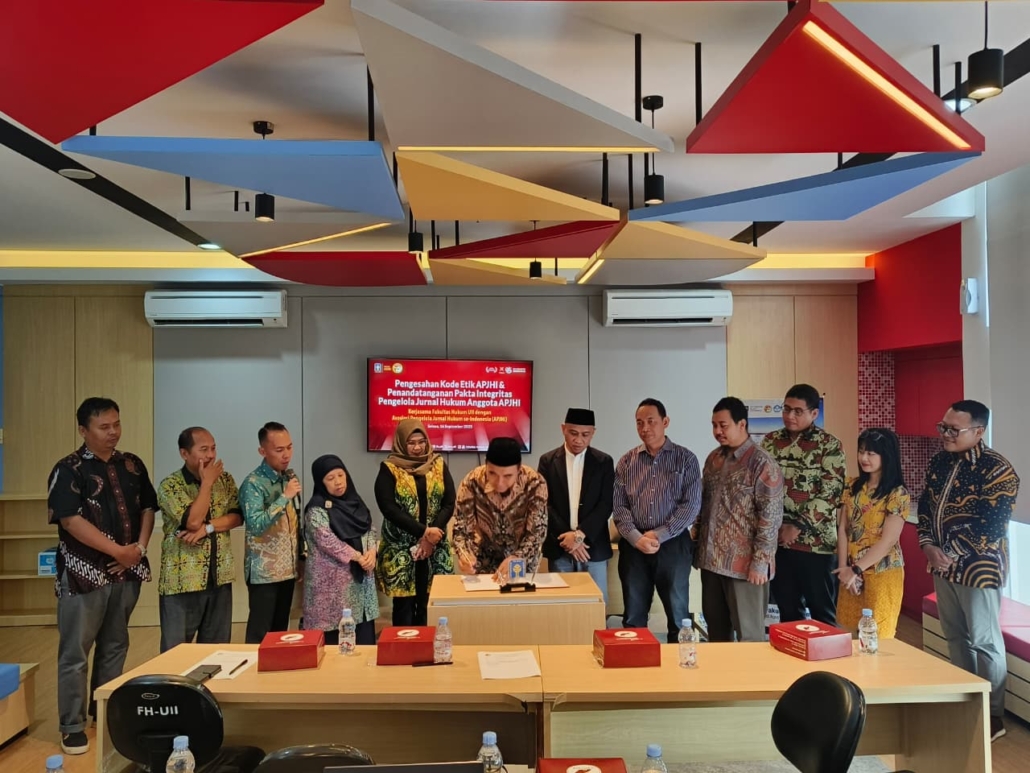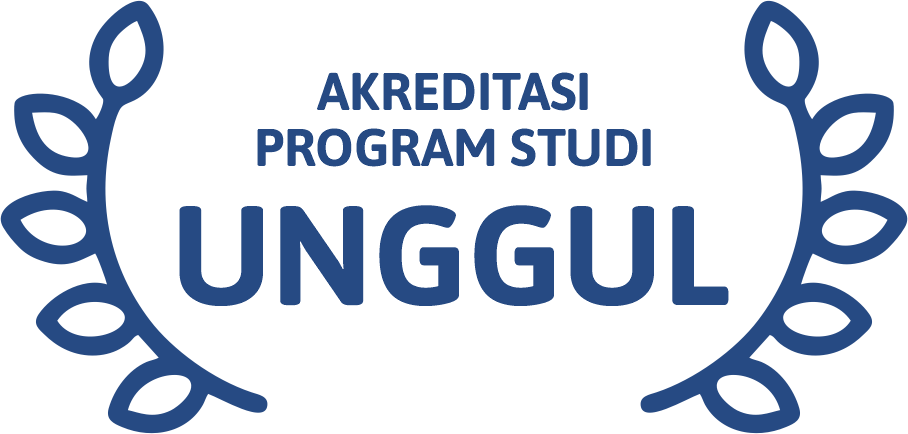Indonesian Association of Law Journal (APJHI) Holds Integrity Pact Ceremony at the Faculty of Law, Universitas Islam Indonesia

On September 16, 2025, the Faculty of Law, Universitas Islam Indonesia (UII), hosted the Ratification of the Code of Ethics and Signing of the Integrity Pact organized by the Indonesian Association of Law Journal (APJHI). The event was held in the 2nd-floor meeting room of the Faculty and attended by representatives from law journal managers across Indonesia—from the western, central, and eastern regions of the country.
In his opening remarks, Dr. Kukuh Tejo Murti, S.H., LL.M., Chairman of APJHI, expressed hope that this event would contribute significantly to maintaining and enhancing the quality of law journal publications in Indonesia. “This Integrity Pact is a vital milestone, particularly as many Indonesian law journals have already obtained national accreditation (SINTA) and even international indexation (Scopus or Web of Science). Through today’s signing, we aim to strengthen the scholarly foundation of Indonesian legal publications and elevate their credibility globally,” he said.
The ceremony began with speeches from the Chairman of APJHI and the Dean of the Faculty of Law UII. It served as a follow-up to the outcomes of the APJHI Annual Meeting previously held at Universitas Pasundan, Bandung, in June 2025, where the draft Code of Ethics was deliberated collectively to establish a shared commitment to quality improvement in legal journal publications.
In his remarks, Prof. Dr. Budi Agus Riswandi, S.H., M.Hum., Dean of the Faculty of Law UII, emphasized the faculty’s dedication to academic integrity: “We strongly support this Code of Ethics and Integrity Pact as mechanisms to uphold the credibility of Indonesian law journals. At UII, integrity is one of our core values, especially as journal managers now face increasing challenges and ethical dilemmas. This collective commitment is essential to ensure that Indonesian legal publications serve as global academic references in the field of law.”

Meanwhile, Dr. Saru Arifin, S.H., LL.M., Ph.D., a member of the APJHI Executive Committee, also stressed the importance of preserving academic integrity in Indonesian higher education institutions: “UII was chosen as the host for this ceremony because of its strong track record in upholding academic ethics. APJHI has established a dedicated Division of Publication Ethics, particularly as more Indonesian law journals are indexed by Scopus. However, we are also aware of negative international perceptions about some journals. If left unchecked, this could lead to the erosion of academic integrity and damage the reputation of Indonesian legal scholars. Our aim must go beyond indexation; it must focus on elevating academic standards and scholarly recognition on the global stage.”
The event was also attended by prominent figures in legal academia and journal management, including:
- Bambang Sutiyoso, S.H., M.Hum. (Head of Department, FH UII)
- Ni’matul Huda, S.H., M.Hum. (Professor of Constitutional Law, FH UII)
- Dodik Setiawan Nur Heriyanto, Ph.D. (Head of Undergraduate Law Program, FH UII & Editor-in-Chief of Prophetic Law Review)
- Dhiana Puspitasari, S.H., LL.M., Ph.D. (Professor at Universitas Brawijaya & APJHI Board Member)
- Fajri Matahati Muhammadin, S.H., LL.M., Ph.D. (Legal Academic & Journal Manager at Universitas Gadjah Mada)
- Nindry Sulistya Widiastiani, S.H., M.H. (FH Atma Jaya Yogyakarta)
- Setyo Utomo, S.H., M.Hum. (FH Universitas Panca Bhakti)
- Jufryanto Puluhulawa, S.H., M.H. (Universitas Negeri Gorontalo)
- Saru Arifin, S.H., LL.M., Ph.D. (FH Universitas Negeri Semarang)
In addition, representatives from Hukum Online and several media outlets were present to the event.
Prof. Dhiana Puspitasari, serving as a Senior Advisor to APJHI, concluded with an insightful reflection: “I strongly support this initiative. Our early goal was to promote the internationalization of Indonesian legal scholarship by encouraging local authors to publish in domestic journals, rather than spending excessively to publish abroad. Over time, however, we’ve encountered new challenges. This Code of Ethics is essential to restore balance and ensure that while we pursue global indexation, we remain committed to academic excellence and integrity.”







